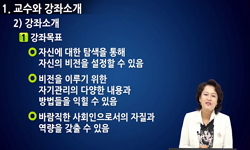지역정체성은 지역민들을 단합시키며, 지역 이미지를 좌우하는 효과를 발휘 한다. 따라서 대부분의 지역에서는 비전이나 슬로건, 혹은 마스코트나 캐릭터 등을 통해 지역정체성을 대표적이...
http://chineseinput.net/에서 pinyin(병음)방식으로 중국어를 변환할 수 있습니다.
변환된 중국어를 복사하여 사용하시면 됩니다.
- 中文 을 입력하시려면 zhongwen을 입력하시고 space를누르시면됩니다.
- 北京 을 입력하시려면 beijing을 입력하시고 space를 누르시면 됩니다.
https://www.riss.kr/link?id=A109622241
-
저자
정정숙 (한국문화기획평가연구소)
- 발행기관
- 학술지명
- 권호사항
-
발행연도
2025
-
작성언어
Korean
-
주제어
문화도시 ; 미래상 ; 비전 ; 실행지 ; 지역정체성 ; Cultural Cities ; Future Images ; Local Identities ; Practical Intelligence ; Visions
-
KDC
911
-
등재정보
KCI등재
-
자료형태
학술저널
-
수록면
301-326(26쪽)
- 제공처
-
0
상세조회 -
0
다운로드
부가정보
국문 초록 (Abstract)
지역정체성은 지역민들을 단합시키며, 지역 이미지를 좌우하는 효과를 발휘 한다. 따라서 대부분의 지역에서는 비전이나 슬로건, 혹은 마스코트나 캐릭터 등을 통해 지역정체성을 대표적이고 압축적으로 표현한다. 본 논문은 2014년 제정된 지역문화진흥법의 제15조 ‘문화도시’ 조항에 근거해 2019년 이래 지정 된 초기의 18개 문화도시 비전에 표방된 내용을 중심으로 추상적이거나 이미 지로 연상되는 지역정체성이 구체적으로 어떤 요소와 내용으로 구성되어 있는 지 해석하였다. 기본적으로 모든 지역은 문화도시를 보편적으로 지향하면서도, 동시에 그 지역만의 매력에 근거한 고유성을 강조한다. 그래서 본 연구는 18개 의 문화도시들이 지역정체성으로 확고해질 미래상인 비전에서 추구하는 보편 성과 특수성을 살펴보는 기준으로 공간과 시간, 도시 내·외관계, 추구하는 가 치, 시민 주역화 수준 등을 설정하였다. 해석의 결과, 지역정체성은 시간적 차 원에서 과거의 역사문화적 자원과 직접 연동되고, 기능 및 산업적 공간보다 시 민의 일상적 공간이 중시되고 있는 것이 드러났다. 또한 문화도시라는 궁극적 목표 실현을 위하여 획일적인 도시개발이 아닌 문화권 향유와 공동체 문화의 확산이라는 연대의 가치를 보편적으로 추구하고 있었으며, 한편 시민이 문화활 동의 주역으로 등장하는 도시가 18개 도시의 과반수에 달했으나, 여전히 시민 이 대상화되어, 주체적 역할이 다소 희박한 도시도 존재했다. 본 연구는 비전 에 표명된 용어를 중심으로 지역정체성의 내용을 탐구하였기 때문에 몇 가지 한계점과 그에 따른 과제를 안고 있다. 비전 수립 시 갈등과 조정의 맥락, 지 역의 정치경제적 상황과의 연계성, 사업수행의 실행지(practical intelligences)에 의한 비전의 변화 양상에 대한 후속 탐구가 요청된다.
다국어 초록 (Multilingual Abstract)
Local identities have united local people and shaped the perceptions of tourists and outsiders. Therefore, local identities have been expressed through local visions, slogans, unique mascots, and distinctive characters. An analysis of the elements and...
Local identities have united local people and shaped the perceptions of tourists and outsiders. Therefore, local identities have been expressed through local visions, slogans, unique mascots, and distinctive characters. An analysis of the elements and content on the local identities was based on the local vision, particularly on common and different characteristics of 18 cultural cities designated by government in Korea from 2019 to 2021, is the purpose of this study. It is widely recognized that the cultural cities focus their development on cultural resources and cultural originality rather than applying uniform standards for only economic purposes. Also, the cultural cities are focusing on peoples’power to build the city development instead of local government administers or specialists of architects & planners. There is a lot of symbolic language used in the visions of the 18 cultural cities that conveys the purposes of the cultural cities and their local identities. The results of analyzing of these visions about the time and space concepts of cities, their values and relationship with other areas, and their level of active participation of city peoples are as follows. At first, the historic and cultural resources have been linked with the future images of these 18 cultural cities. Second, cultural cities aim to change their functional and industrial spaces into daily life spaces for city peoples. Also, there are positive and active city peoples above half of cities to participate in the development of their cities. However some cities still put their city peoples in passive positions to make cultural cities. On the other hand, this study has a bit of limitations because of analyzing the words itself on the visions of the 18 cultural cities without considering the local contexts and characteristics of participants. Moreover, the visions including their local identities can not be fixed in one moment. The visions can be newly composed through practical intelligence during the practicing process of projects in cultural cities. So we should be concerned about turning points or transition periods of visions in cultural cities in the future continuously.
목차 (Table of Contents)
- 국문초록
- Ⅰ. 지역정체성과 비전
- Ⅱ. 지역정체성의 정체
- 1. 정체성의 현실적인 존재감
- 2. 정체성의 가치
- 국문초록
- Ⅰ. 지역정체성과 비전
- Ⅱ. 지역정체성의 정체
- 1. 정체성의 현실적인 존재감
- 2. 정체성의 가치
- 3. 정체성의 형성과 비전
- Ⅲ. 문화도시의 배경과 비전의 분석 방법
- Ⅳ. 지역정체성인 비전의 구성 내용 해석
- 1. 시간과 공간의 범위와 의미
- 2. 내포된 감성과 표현된 감각들의 예술성
- 3. 관계에 대한 인식과 적극적 개방성
- 4. 가치와 가치관의 생산
- 5. 시민 주역화의 상징과 현실
- Ⅴ. 결어: 지역정체성의 변화와 새로운 구성 및 과제
- 참고문헌
- Abstract
동일학술지(권/호) 다른 논문
-
공동체 관점에 의한 지역 캐릭터 사례 분석 - 고양시 ‘고양고양이’를 중심으로
- 한국지역문화학회
- 박하경
- 2025
- KCI등재
-
공연장 서비스요인이 추천의도에 미치는 영향에 관한 연구 (공공극장의 패널분석)
- 한국지역문화학회
- 서정환
- 2025
- KCI등재
-
로컬크리에이터의 정체성 연구 : 내재적 동기와 외재적 역할을 중심으로
- 한국지역문화학회
- 김순한
- 2025
- KCI등재
-
르페브르 이론에 의한 도시의 공공 공간 활성화 요인 - 중국 청두시 인민공원을 중심으로
- 한국지역문화학회
- 류예헝
- 2025
- KCI등재





 KCI
KCI eArticle
eArticle






